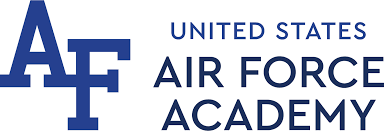What Makes Leadership Development Impactful? Exploring a Whole-Person Approach
DOI:
https://doi.org/10.58315/jcld.v11.304Abstract
No abstract available.
Downloads
References
Born, D. H. as member of the Consensus Study Committee. (2020, July). Are generational categories meaningful distinctions for workforce management?: National Academies of Sciences Engineering and Medicine Committee Report. Committee on the Consideration of Generational Issues in Workforce Management and Employment Practices. Board on Behavioral, Cognitive, and Sensory Sciences, Division of Behavioral and Social Sciences and Education. The National Academies Press. https://www.nationalacademies.org/our-work/consideration-of-generational-issues-in-workforce-management-and-employment-practices
Born, D. H. (2016, Winter). Research: Character counts. Harvard Kennedy School Magazine, p. 9. https://www.hks.harvard.edu/research-insights/policy-topics/public-leadership-management/character-counts
Born, D. H., & Caligiuri, P. (2024). Leadership perspective: Leaders’ psychological bravery. Journal of Character and Leadership Development (JCLD), 11(1), 62–65. https://doi.org/10.58315/jcld.v11.292
Born, D. H., & Goldstein, J. (2018, March 15). Business leaders can reverse the implosion of trust. The Boston Globe. https://www.bostonglobe.com/opinion/2018/03/14/business-leaders-can-reverse-implosion-trust/bYNa50Ad4mL2Hy11lF5TeP/story.html
Born, D. H., Hendrix, W. H., & Hartley, J. (2019). Moral maturity. Journal of Character and Leadership Development (JCLD), 6(2), 151–160. https://www.hks.harvard.edu/publications/empirical-assessment-two-facets-moral-maturity
Born, D. H., Hendrix, W. H., & Pate, E. (2017). Three pillars of organizational excellence. Journal of Character and Leadership Integration (JCLI), 4(1), 45–54. https://jcli.scholasticahq.com/article/1309-three-pillars-of-organizational-excellence
Born, D. H., & Megone, C. (2019). Character & leadership: Ancient wisdom for the 21st century. Journal of Character and Leadership Development (JCLD), 6(1), 68–87. https://www.hks.harvard.edu/publications/character-and-leadership-ancient-wisdom-21st-century
Born, D. H., Phillips, A., & Trainor, T. (2012). America’s service academies, your service academies. Liberal Education. Association of American Colleges and Universities, 98(1), 46–51.
Brooks, A., & Winfrey, O. (2023). Build the life you want: The art and science of getting happier. Portfolio Penguin Random House LLC.
Brummelhuis, T. L. L., & Bakker, A. B. (2012). Work-life balance, well-being, and organizational outcomes: Investigating the mediating role of work-life balance in the relationship between work-family conflict and health outcomes. Journal: Journal of Occupational Health Psychology, 17(4), 399–409. https://doi.org/10.1037/a0029351
Campbell, J. D., Trapnell, P. D., Heine, S. J., Katz, I. M., Lavallee, L. F., & Lehman, D. R. (1996). Self-concept clarity: Measurement, personality correlates, and cultural boundaries. Journal of Personality and Social Psychology, 70(1), 141. https://doi.org/10.1037/0022-3514.70.1.141
Cook, C., Shambach, M., Zukauskaite, G., Pate, E., & Born, D. H. (2021). Public leadership with a moral purpose: A phenomenological view. Journal of Character and Leadership Development (JCLD). https://jcldusafa.org/index.php/jcld/article/view/56
Craig, N., & Snook, S. A. (2014). From purpose to impact. Harvard Business Review, 92(5), 104–111.
Craig, N., George, B., & Snook, S. (2022). True North Fieldbook: Emerging Leader Edition. Wiley.
Craig, N., George, B., & Snook, S. (2023). True North Fieldbook: Emerging Leader Edition. Wiley.
Day, D., Bastardoz, N., Bisbey, T., Reyes, D., & Salas, E. (2021). Unlocking human potential through leadership training & development initiatives. Behavioral Science & Policy, 7(1), 41–54. https://doi.org/10.1177/237946152100700105
Enger, R. C., Jones, S. K., & Born, D. H. (2010). Commitment to liberal education at the United States Air Force Academy. Liberal Education. Association of American Colleges and Universities, 96(2), 14–21.
George, B. (2015). Discover your true north: Becoming and authentic leader. Wiley.
George, B., & Clayton, Z. (2022). True north: Leading authentically in today’s workplace, emerging leader edition. Wiley.
George, B., Sims, P., McLean, A. N., & Mayer, D. (2007). Discovering your authentic leadership. Harvard Business Review, 85(129).
Gergen, D. (2022). Hearts touched with fire: How great leaders are made. Simon and Schuster.
Guest, D. E. (2017). Human resource management and employee well-being: Towards a new analytic framework. Human Resource Management Journal, 27(1), 22–38. https://doi.org/10.1111/1748-8583.12139
Hendrix, W. H., Born, D. H., & Hopkins, S. (2015). Effects of leadership and character on organizational outcomes. Journal of Character and Leadership Integration (JCLI). http://t.co/2dvr4tTCha
Kelloway, E. K., & Barling, J. (2010). Leadership development as an intervention in occupational health psychology. Work & Stress, 24(3), 260–279. https://doi.org/10.1080/02678373.2010.518441
Kirschner, A., & Born, D. H. (2018). Education is not preparing students for a fast-changing world. Attention: Your acronym of the day is VUCA. AI: The human factor & future of work. The Boston Globe. https://www.bostonglobe.com/opinion/2018/09/12/education-not-preparing-students-for-fast-changing-world/96vTGowaDypumwyLtPtLjP/story.html
Li, G., Liu, H., & Luo, Y. (2018). Directive versus participative leadership: Dispositional antecedents and team consequences. Journal of Occupational and Organizational Psychology, 91, 645–664. https://doi.org/10.1111/joop.12213
Moss, J. (2021). The burnout epidemic: The rise of chronic stress and how we can fix it. Harvard Business Review Press.
Pirson, M. (2019). A humanistic perspective for management theory: Protecting dignity and promoting well-being. Journal of Business Ethics, 159(1), 39–57. https://doi.org/10.1007/s10551-017-3755-4
Rampersad, H., & Hussain, S. (2014). Alignment with your organization. In Authentic governance. Management for professionals. Springer. https://doi.org/10.1007/978-3-319-03113-2_10
Rivera, G. N., Christy, A. G., Kim, J., Vess, M., Hicks, J. A., & Schlegel, R. J. (2019). Understanding the relationship between perceived authenticity and well-being. Review of General Psychology, 23(1), 113–126. https://doi.org/10.1037/gpr0000161
Ryff, C. D. (1989). Happiness is everything, or is it? Explorations on the meaning of psychological well-being. Journal of Personality and Social Psychology, 57(6), 1069–1081. https://doi.org/10.1037/0022-3514.57.6.1069
Yemiscigil, A., Born, D. H., & Ling, H. (2023a, February 28). What makes leadership development programs succeed? Harvard Business Review. https://www.hks.harvard.edu/publications/what-makes-leadership-development-programs-succeed
Yemiscigil, A., Born, D. H., Snook, S., & Pate, E. (2022a). Authentic leader(ship) development and leaders’ psychological well-being: An outcome-wide analysis. Leadership & Organization Development Journal, 43(8), 1287–1307. https://doi.org/10.1108/LODJ-11-2021-0525
Yemiscigil, A., Born, D. H., Snook, S., & Pate, E. (2022b). Authentic leader(ship) development and psychological well-being: An outcome-wide analysis. Academy of Management (AOM) Conference Proceedings. [BEST PAPER AWARD]. https://journals.aom.org/doi/abs/10.5465/AMBPP.2022.194
Yemiscigil, A., Powdthavee, N., & Whillans, A. V. (2021). The Effects of Retirement on Sense of Purpose in Life: Crisis or Opportunity? Psychological Science, 32(11), 1856–1864. https://doi.org//10.1177/09567976211024248
Yemiscigil, A., Yilmaz, M., & Lee, M. (2023b). How to find your purpose? Harvard Business Review. https://hbr.org/2023/09/how-to-find-your-purpose
Published
How to Cite
Issue
Section
License
Copyright (c) 2024 Dana H. Born, Ayse Yemiscigil

This work is licensed under a Creative Commons Attribution 4.0 International License.
Authors contributing to Journal of Character & Leadership Development agree to publish their articles under the terms of the Creative Commons CC-BY 4.0 License. Authors retain copyright of their work, with first publication rights granted to the JCLD.



